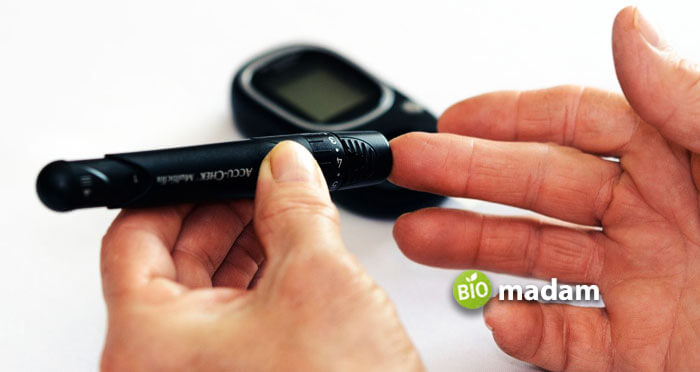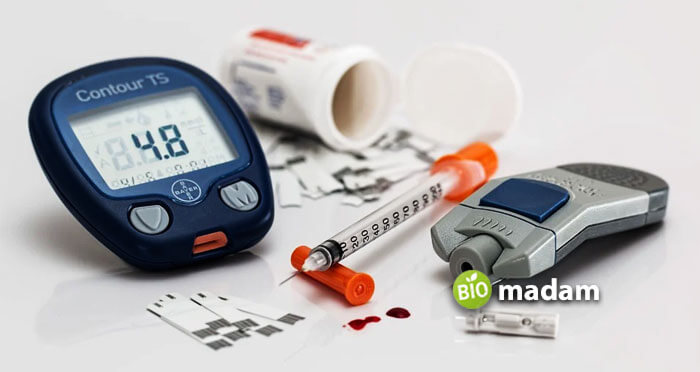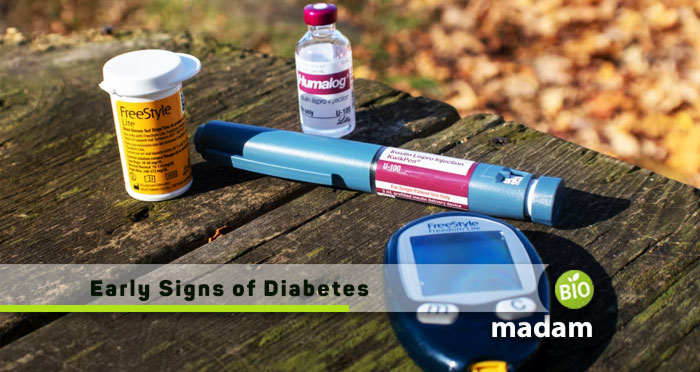Recently updated on October 5th, 2023 at 07:10 am
If you are concerned that you may have diabetes, it is important to be aware of the early signs and symptoms. Diabetes can cause many long-term health problems if it is not treated, so it is important to get diagnosed as early as possible. This blog post will discuss some of the most common early signs of diabetes. Keep in mind that everyone experiences diabetes differently, so if you experience any of these symptoms, please consult your doctor.
Slow Healing of Cuts and Wounds

One of the primary symptoms of diabetes is a slow healing process. If you have cuts or blisters on your body, and they take a long time to heal, this could be one of the early signs of diabetes. This happens because high blood sugar levels can damage the nerves in your hands, arms, feet, and legs, which prevents them from sending a message to your brain telling it that there is an injury. As a result, you may not be aware of your injuries, and it can take longer for these wounds to heal. In this case, the seasoned medical practitioners behind DiaBettr suggest that you consult with a podiatrist to make sure that you are healing properly. Otherwise, you could be at risk of developing an ulcer.
Increased Thirst and Hunger
Another symptom that can occur with diabetes is increased thirst and hunger, even if you are eating more than usual. This happens because your body cannot use glucose from the blood as energy since it is not able to produce enough insulin or use it effectively. Your body then starts to break down protein and fat, which produces a buildup of acids in the blood. As a result, you may feel hungry or thirsty more often than usual. This can lead to weight gain or loss, which is a sign that you may have diabetes.
Frequent urination
Another early symptom of diabetes is increased urination. When you have diabetes, your body tries to get rid of the extra sugar by flushing it out in your urine. Your body also cannot use glucose as energy, so it builds up in your blood and filters into the urine instead. Since there is more sugar in the urine than normal, your kidney needs to work harder to filter the blood and get rid of this excess sugar. This can cause you to urinate more often than usual and may lead to dehydration. You may also feel a burning sensation when you pee. If you are experiencing any of these symptoms, please consult with your doctor as soon as possible.
Fatigue
If you start feeling tired or weak suddenly, this could be one of the early symptoms of diabetes. This can be because your cells are not getting enough sugar, so they cannot produce energy, which makes you feel tired. You may also be low on blood sugar or have a high glucose level in your blood, both of which can make you feel fatigued. Just keep in mind that other factors can be causing fatigue, so make sure to consult with your doctor as soon as possible.
Blurry Vision
Another symptom of diabetes that you need to be aware of is blurry or double vision. This happens because high blood sugar can cause the lens in your eye to swell, which changes its shape and causes this distortion in your vision. If left untreated, it can lead to blindness. If you are experiencing any changes in your vision, you have to consult with your doctor as soon as possible so that you can get treated.
Numbness or Tingling in the Hands and Feet
Another symptom of diabetes that you need to be aware of is numbness or tingling in your hands, legs, arms, and feet. This happens because high blood sugar levels can cause damage to the nerves, which sends a message from your brain about what you are experiencing. As a result, your hands and feet may feel numb or tingling, since they cannot send the message to your brain that something is wrong.

Nausea and vomiting
Additionally, if you start to experience nausea and vomiting suddenly, this could be one of the early warning signs of diabetes. This happens because high blood sugar levels can cause the stomach to empty slowly and lead to nausea and vomiting. It can also be caused by a drop in blood pressure, which can cause you to feel nauseous. What you can do in this case is to have small meals throughout the day, which can help slow down digestion and prevent nausea.
These are some of the most common signs and symptoms of diabetes that you need to be aware of. If you experience any of these symptoms, don’t hesitate to consult with your doctor as soon as possible. Diabetes can cause many long-term health problems, so it is important to catch the disease early and get treated.

Hi, they call me Jenna, and I am also known for achieving a gold medal during my Ph.D. in science life. I always had a dream to educate people through my utmost writing hobby. So, I chose this blogging path, and Biomadam gave me this opportunity to present for them. I now stand to entertain you. Continue reading my articles & discuss if you’ve any confusion through the comment section below.

